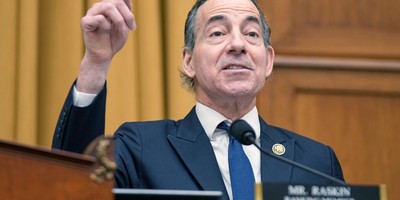One policy of the Obama administration that has understandably attracted little public attention is its proposal to make the Federal Reserve a "systemic risk regulator." It's a well-intentioned attempt to prevent the kind of financial crisis that struck the nation last year and ended an unprecedented period of 25 years of low-inflation economic growth. But it's nonetheless deeply misguided, and it's heartening that both Democratic and Republican members of Congress have voiced intelligent skepticism.

For one thing, it's not clear that anyone can be expected to reliably identify "systemic risk." Financial institutions that invested in subprime mortgage-backed securities certainly did not believe they were taking undue risk, much less the risk of bringing down the financial markets altogether. No federal regulator identified this risk, and the government-sponsored enterprises Fannie Mae and Freddie Mac and their congressional masters worked hard to promote the injection of what are now recognized as toxic assets into financial institutions all over the world.
A few critics, like my American Enterprise Institute colleague Peter Wallison, argued that Fannie's and Freddie's operations could impose huge costs on taxpayers, as they now have. But, as Wallison points out, giving the Fed the power to say that particular financial institutions are of systemic importance means giving them the implicit government guarantee that allowed Fannie and Freddie to operate as they did. Labeling institutions as "too big to fail" increases the chances they will, and that the government will pay the bill.
A better suggestion comes from another AEI colleague, Alex Pollock. He notes that there would be a tension between the Fed's core mission -- maintaining the value of the currency -- and its role as a systemic risk regulator. He calls instead for a "systemic risk adviser," an independent government agency with no regulatory authority, but with an expert staff and a wide ambit to "speak its mind to Congress, the administration, foreign official bodies, and financial actors domestic and international" -- "a philosopher, but not a philosopher-king."
Recommended
We have another example of such an agency, in a different part of government, the National Transportation Safety Board. The NTSB investigates accidents and reviews transportation safety regulations; it issues findings and makes recommendations but lacks the power to order anyone in government or the private sector to do anything.
Over the years, the NTSB has built great credibility. NTSB chairmen in both Democratic and Republican administrations have told me that the agency's personnel are first-rate, intellectually honest, and dedicated to perpetuating an institutional culture of integrity and rigor. The NTSB has no institutional interest in defending its previous regulations because it does not issue any -- it is free to call 'em the way it sees 'em.
Some critics argue that the NTSB's lack of authority is a defect. The agency called for retrofitting the aging subway cars involved in last month's fatal Washington Metro accident, but it could not order it done. But with the problem clearly identified, the Metro management that failed to follow that recommendation will now surely find the money to do so.
A systemic risk adviser, like the NTSB, could not order things done. But it seems far more likely to identify systemic risks than do operating agencies, which always have an interest in defending existing policies -- as Republican Sen. Jim Bunning, an acerbic critic of the Federal Reserve, understood when he asked last year how the Fed could regulate systemic risk when the Fed is a systemic risk. Or as Democratic Sen. Mark Warner, calling for a systemic risk advisory board, wrote recently in The Washington Post, the Fed has "conflicting or diverting responsibilities" and lacks "transparency and accountability." He called for a systemic risk advisory board similar to Pollock's.
After any financial crisis, there is always a cry that we should never let one happen again. But they always do, sooner or later, and in ways that almost no one anticipates. Proposals like the Obama administration's systemic risk regulator are intended to reduce risk to zero. But reducing risk to zero turns out to be very high-risk.
A more modest approach could produce better results. Would a systemic risk adviser, Pollock asks, have identified the dangers that, since last September, have become so apparent? His answer: "Perhaps. Could its voice and focus have served to reduce the systemic risk? Maybe. Given the huge potential benefit if it did, an independent systemic risk adviser is worth a try."

























Join the conversation as a VIP Member